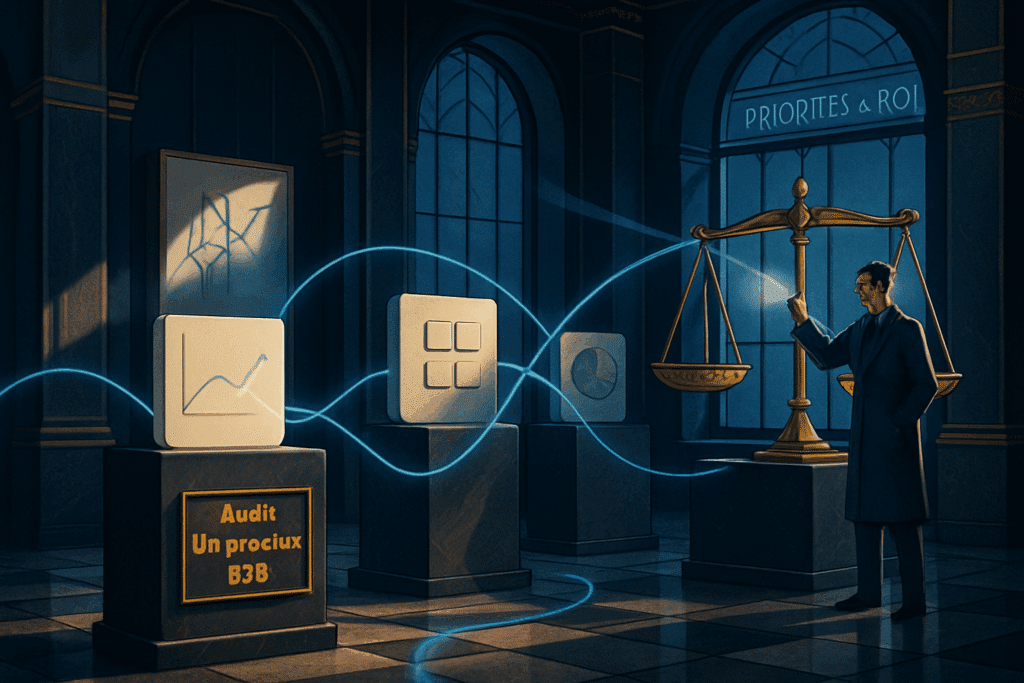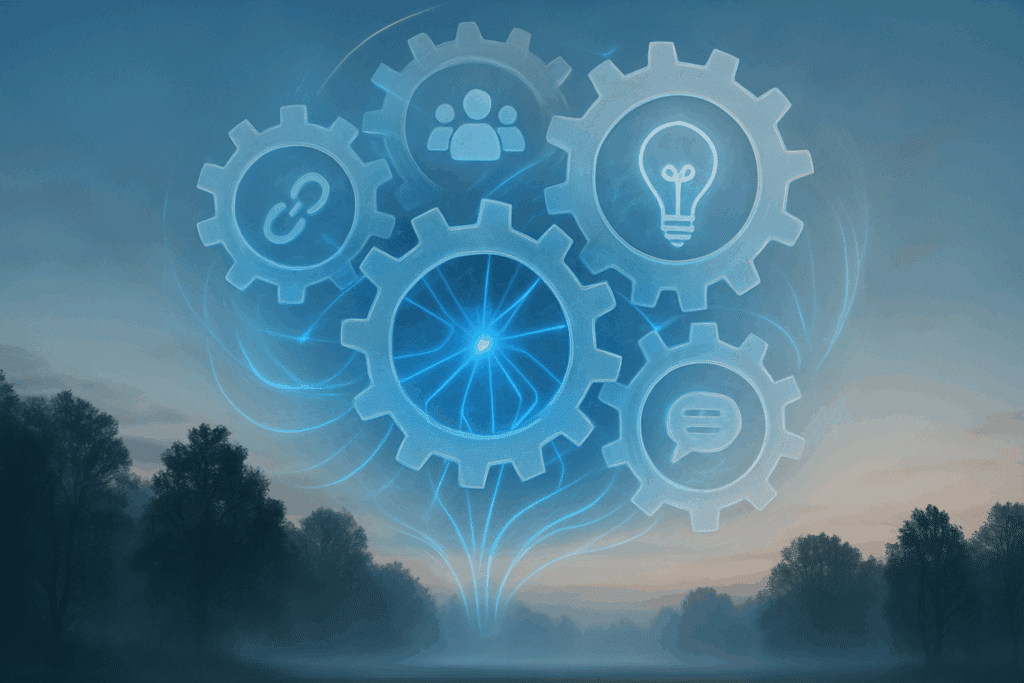Advanced AI strategies to automate customer support
Advanced AI strategies for automating customer support refer to the use of sophisticated artificial intelligence technologies such as machine learning, natural language processing, and predictive analytics to provide autonomous, personalized and scalable customer support. These solutions bring a significant improvement in customer interactions while optimizing corporate resources.
- Conversational chatbots based on natural language processing enable fine-tuned understanding of requests and continuous availability.
- Automated, customizable workflows make it easy to manage and resolve tickets quickly, without having to modify the IT infrastructure.
- The unification of knowledge sources ensures coherent, enriched responses from multiple internal databases.
- Predictive analysis anticipates customer needs and improves satisfaction by proposing proactive solutions.
- Secure, step-by-step deployment reduces the risks involved in integrating AI into customer service.
Automating customer support is a major lever for companies looking to improve the user experience while keeping operational costs under control. Advanced
With the exponential growth in exchanges and demands in the field of customer support, the integration of advanced AI solutions is becoming essential. These technologies are gaining ground in many sectors, such as telecoms, electronics and digital services, where the quality and speed of customer relations are crucial differentiating factors. Strategists, customer service managers and IT departments are the main players concerned by these innovations, which respond to the need to optimize human resources while maintaining a high level of customer satisfaction.
Key technologies and applications for advanced AI strategies
Advancedartificial intelligence techniques are based on three major technological pillars: machine learning, natural language processing (NLP) and predictive analysis. Together, these tools enable the creation of an automated customer service capable of evolving and adapting to user expectations. Here are the main components and concrete examples:
- NLP-based conversational chatbots: These intelligent agents precisely interpret customer requests in natural language. Unlike chatbots based on fixed scripts, they evolve by learning from previous interactions, offering a more fluid and natural experience. These chatbots answer frequently asked questions 24/7, relieving human teams of repetitive tasks. They are deployed on websites, mobile applications or messaging platforms[1][3][7].
- Automation of customizable workflows: Integrating AI as a plug-and-play layer on existing systems makes it easy to automatically sort tickets, direct them to the right departments, and trigger specific actions such as extracting order details or updating customer files, without requiring heavy modifications to the infrastructure. This automation increases efficiency and processing speed[1][2].
- Unification of knowledge sources: advanced automated systems collect and analyze data from different internal databases, such as old tickets, wikis, FAQs or technical documents. This ensures complete, consistent responses aligned with brand policy, reinforcing the reliability of automated service[1][5].
- Predictive analysis: By exploiting historical customer data and statistical models, AI anticipates customer needs and detects potential problems even before a request is made. This proactive capability significantly enhances satisfaction by offering customized solutions on a preventive basis[3][8].
- Intelligent voice assistants: Complementing text chatbots, voice assistants offer complex voice interactions, particularly useful in specialized sectors such as telecommunications or electronics, where accessibility and richness of exchanges are essential[3].
These advanced technologies have a direct impact on the quality and efficiency of customer support, facilitating a more personalized relationship and reducing the burden on human teams.
Secure deployment and customization tools
Deploying advanced AI systems in customer support needs to be done carefully to minimize risk. Solutions are often tested in sandbox mode, using historical data to identify malfunctions before going live. Deployment is gradual, initially automating simple tasks and then integrating more complex scenarios as the system learns and adjusts[1][5].
In addition, some platforms offer no-code solutions to accelerate the personalization of conversational agents. Tools such as Tidio, Landbot or AnyChat enable the rapid creation of customized chatbots, with simplified integration with other business tools via platforms like Zapier or Make. These options offer major time savings and greater adaptation to specific business needs[2].
Multi-channel customer experience and centralized data management
Advanced strategies also rely on seamless integration with different communication channels such as websites, instant messaging and social networks. This multi-channel approach ensures a constant presence of automated customer service, available 24/7. What’s more, connection to CRM and ERP tools guarantees centralized updating of information, helping to deliver a seamless, personalized experience across all points of contact[5][7].
This data synchronization enhances customer service’s ability to react quickly and appropriately, based on a complete, consolidated history of customer interactions.
Business model and adoption of advanced solutions
Most advanced AI customer support automation platforms adopt pricing based on the features offered or the volume of interactions. This transparent model avoids hidden costs and facilitates the gradual adoption of solutions based on real business needs[1].
This pricing approach, combined with the flexibility of no-code tools and ease of integration, is encouraging organizations to move towards a more intelligent automated customer service, adapting to constant market changes.
Synthesis and perspectives of advanced AI-based customer support automation strategies.
Advanced artificial intelligence strategies applied to customer support automation are today indispensable levers for improving the quality, speed and personalization of responses to users. By combining machine learning, natural language processing, predictive analysis and multi-channel integration, these solutions reduce the workload on human teams, while increasing customer satisfaction.
Secure deployment, the use of tools that can be customized without the need for code, and transparent business models all contribute to gradual adoption, adapted to business constraints. The ongoing evolution of technologies promises ever more intelligent automation, capable of anticipating future needs and integrating new forms of interaction such as voice.
For any organization wishing to optimize its customer service, it is advisable to evaluate these advanced AI solutions in order to achieve an optimal balance between innovation, efficiency and customer satisfaction.
To find out more about the possibilities offered by artificial intelligence in the field of customer support, and to discover suitable solutions, it’s advisable to consult specialized experts and to follow technological innovations regularly on Les Communicateurs.
















